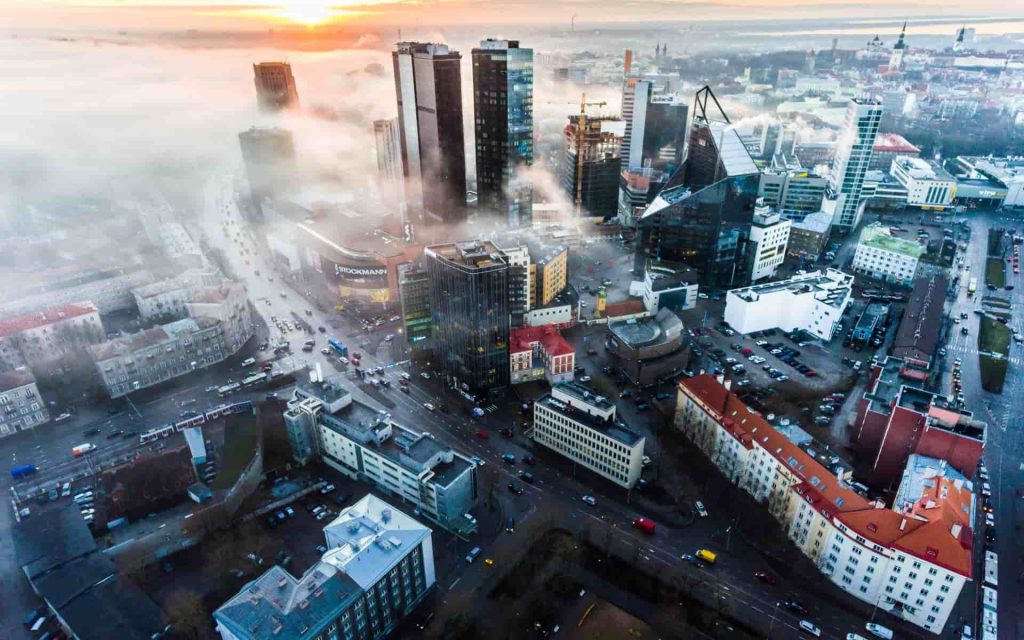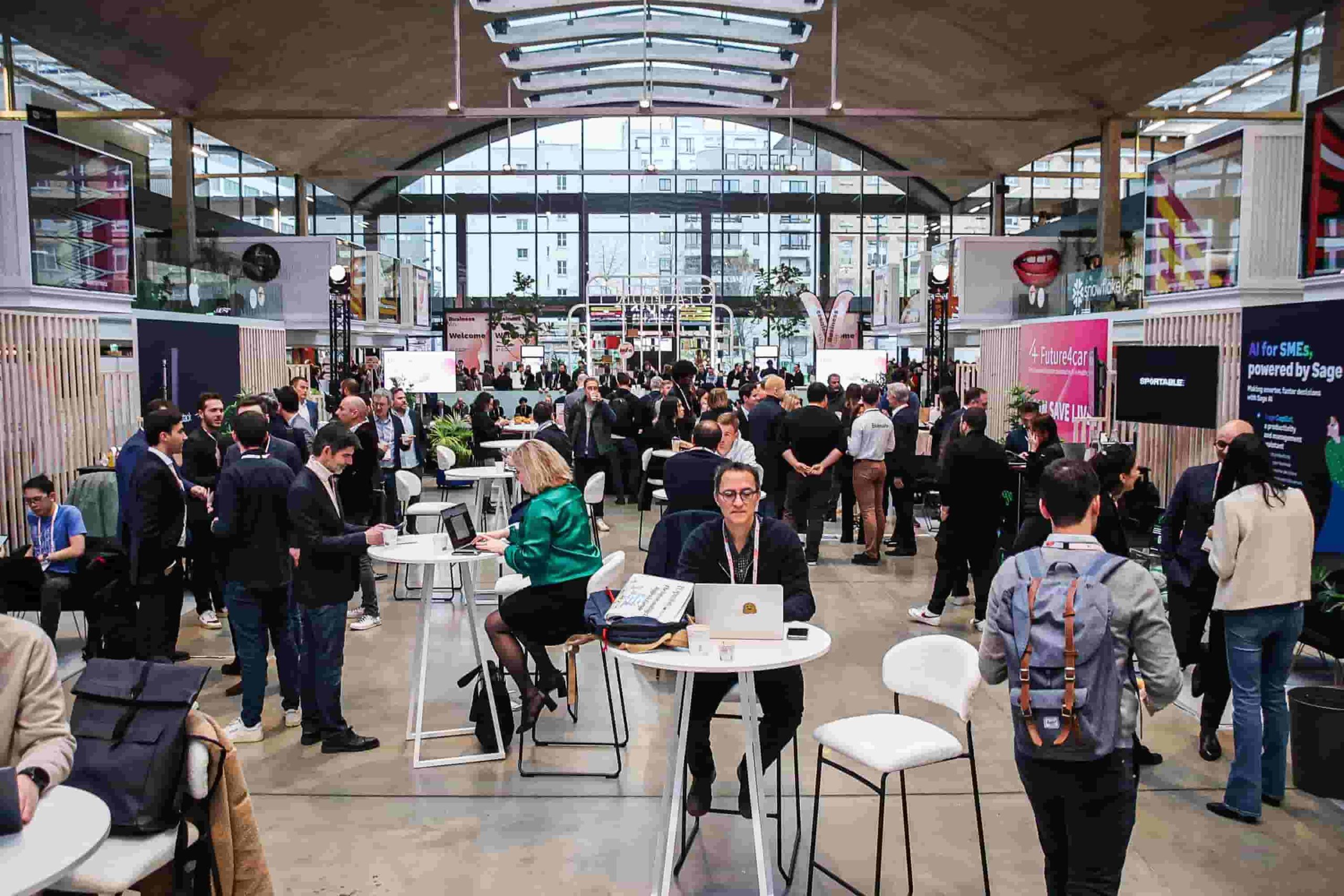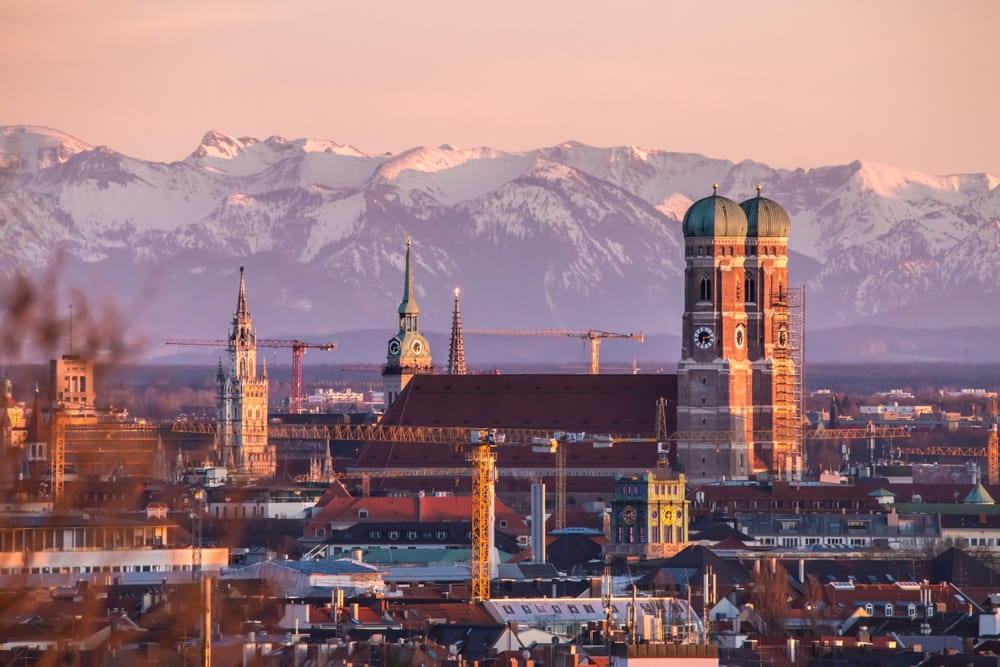startup hubs in europe 2025: top cities to start a business
What factors define the leading startup hubs in Europe, and lead some cities to stand out as the best place to start a business?

Across Europe, certain cities consistently attract ambitious founders and fast-growing businesses. But not all have what it takes to be a genuine startup hub.
Key ingredients include a rich talent pool, access to capital, a strong support ecosystem, cost-effectiveness, and a business-friendly regulatory environment. Increasingly, quality of life also plays a central role, especially as more founders embrace hybrid or remote work and consider long-term sustainability.
Authoritative rankings like those from Startup Genome, Dealroom, and the Financial Times weigh all these factors when assessing the top startup hubs in Europe and elsewhere. They assess not just total company numbers or unicorns, but also community maturity, sector diversity, and how well each city supports scale-up growth (because the startup phase is just… the start.)
So, given we have the technology to support personal choice about work and life location, where are top founders considering building in 2025?
Europe’s top startup hubs in 2025
Several cities remain dominant in European startup rankings, each offering unique strengths. Their benefits for both business and lifestyle are as diverse as the countries and cities themselves, which explains the unique flavour of the many different startup hubs in Europe.
London
The financial capital powering Europe’s fintech boom
London continues to dominate Europe’s startup ecosystem, not just in size, but in influence. It remains the continent’s undisputed fintech capital, home to hundreds of startups and scale-ups shaping global payments, neobanking, and blockchain applications.
Iconic institutions like the London Stock Exchange help draw investment from around the world, while former industrial zones like East London’s tech cluster – once dubbed Silicon Roundabout – have matured into thriving hubs of innovation.
The UK capital also hosts a robust AI and healthtech sector, supported by world-class universities and a steady flow of early-stage capital.
Despite the ongoing complexities of Brexit, London remains attractive to founders thanks to its depth of talent, regulatory expertise, and global market access. For many digital-first entrepreneurs, the ability to operate entirely in English is still a major advantage.

Paris
Europe’s AI hotspot with global ambition
Paris has carved out a distinctive role as Europe’s leading centre for artificial intelligence, greentech, and academic-commercial collaboration. Anchored by Station F, the world’s largest startup campus, the French capital offers more than just impressive infrastructure – it delivers real scale.
In 2025, it ranked as the #2 startup hub in the EU, according to the Financial Times, a rise driven by increased VC flows and a deliberate push to attract international founders.
Major government initiatives like La French Tech have helped fuel this growth, combining public funding with strong support for research-driven innovation. The ecosystem is particularly appealing for startups working in AI ethics, climate tech, and future mobility, areas where public-private collaboration is fundamental.
Estonian e-Residency has recently recognised the growing importance of the ‘French Connection’ by appointing a dedicated business development liaison, Kristiina Kalda, to strengthen these ties with one of the key startup hubs in Europe.
Berlin
Capital of creative tech and urban innovation
Renowned for its creative energy, progressive culture, and relatively low cost of living, Berlin remains a magnet for entrepreneurs from across the world. It continues to attract early-stage talent looking to launch and grow ventures in a dynamic, international setting.
Berlin has particular strengths in e-commerce, gaming, social tech, and increasingly in climate-focused startups, backed by its well-connected venture capital ecosystem. It’s also home to large-scale events like Tech Open Air (TOA) and hubraum’s accelerator programmes, which strengthen founder-investor networks.
With co-working spaces like Factory Berlin and a growing number of unicorns, Berlin remains one of Europe’s top destinations for building a startup community with edge and diversity.
Amsterdam
A scalable launchpad for globally minded founders
Efficient, multilingual, and centrally located, Amsterdam is a favourite for founders seeking both access to Western Europe and a high quality of life. The Dutch capital ranks #5 in the EU for startup productivity, according to Dealroom, and serves as a key hub for logistics tech, enterprise SaaS, fintech, and clean energy innovation.
Amsterdam’s StartupAmsterdam initiative provides a city-backed support network for local and international founders alike, and its robust infrastructure means startups can scale quickly, with fewer bureaucratic hurdles than in many larger cities.
The city also excels in work-life balance and sustainability, making it especially appealing to international teams and remote-first companies.

Munich
Deeptech and industrial AI at the heart of Europe
Germany’s deeptech stronghold Munich thrives on its close links with academia, corporates, and global innovation ecosystems.
The city is home to UnternehmerTUM, one of Europe’s largest and most effective centres for entrepreneurship, offering access to advanced prototyping labs, accelerator programmes, and strategic industry partnerships.
Munich’s strengths lie in robotics, aerospace, quantum computing, and industrial AI, driven by institutions like the Technical University of Munich (TUM) and major players such as Siemens and BMW.
The city also benefits from strong funding channels and a deep investor pool focused on long-term innovation, making it one of the best cities to start a business for startups solving hard technical challenges at scale.
Lisbon
Southern Europe’s rising star for startups
Lisbon is fast emerging as one of the south’s most promising startup hubs in Europe, offering a rare combination of affordability, quality of life, and genuine tech momentum.
Once seen mainly as a destination for digital nomads and freelancers, Portugal’s capital now hosts a growing ecosystem for early-stage startups, particularly in green tech, mobility, e-commerce, and remote collaboration tools.
Government-led initiatives like Startup Portugal and visa schemes for tech founders have made Lisbon more accessible than ever for international entrepreneurs. Meanwhile, its flagship tech conference Web Summit has brought global investor attention and connected Lisbon to wider European innovation circuits.
Each of these hotspots has its merits. But in a fast-changing world, Tallinn is steadily climbing the rankings of the best cities to start a business, for good reason.
Tallinn
One of the best places to start a business
Tallinn, Estonia’s capital, may be smaller than other European hubs, but it consistently punches above its weight in both innovation and founder support.
In its 2025 Quality of Life survey, Monocle magazine named Tallinn the world’s best city for startups. That praise wasn’t just based on cost-efficiency. It recognised Tallinn’s unique combination of digital infrastructure, international connectivity, and livability for founders and their teams, all factors which help define the most important startup hubs in Europe.
Estonia already has the highest startup density in Europe, with over 1,100 startups per million inhabitants. Tallinn, as the heart of this small yet mighty country, now ranks in the global top 50 startup cities, with Estonia climbing to 11th place worldwide for startup ecosystems in 2025.
Please to watch this video.
Startup activity in Q1 2025 alone produced over €1.22 billion in turnover, a 40% increase year-on-year. The top 10 companies raised over €550 million collectively, pointing to rapid scale-up momentum across sectors.
Estonia is also emerging as a leader in dual-use and defence technologies. Deep-tech companies accounted for 17% of all Estonian startup employment in early 2025, with turnover passing €100 million in Q1. Tallinn plays a pivotal role in this, thanks to proximity to NATO’s Cyber Defence Centre, established R&D links, and a startup culture geared towards solving hard problems in the face of threats close to home.
Investors are noticing. Estonia now hosts over 100 defence-focused startups, up from fewer than 10 a decade ago. The national government and private investors have backed this sector with over €100 million in dedicated funds.
How Tallinn compares with the best cities to start a business
While the big-name hubs often come with big-city costs, Tallinn offers serious value, comparing strongly with Europe’s leading startup hubs on a range of factors. The monthly cost considers the average combined cost of living and operating a lean startup (team of two-five) in each city. It includes workspace rental, utilities, local salaries, taxes, and founder living expenses.
London
Paris
Berlin
Amsterdam
Tallinn
€5,000+
€4,200
€3,800
€4,500
€2,200
Moderate – traditional but systematic, digitised in parts
Bureaucratic – many steps and slow processing, lots of appointments
Moderate, lots in-person, challenging to non-German speakers
High compliance demands especially for non-EU founders
Fully digital, remote and paperless
Established deeply around specific sectors
Established deeply around specific sectors
Emerging and growing fast, high digitisation
Already strong and competitive, internationalised
Very extensive, built in to state infrastructure
London
€5,000+
Moderate – traditional but systematic, digitised in parts
Established deeply around specific sectors
Paris
€4,200
Bureaucratic – many steps and slow processing, lots of appointments
Established deeply around specific sectors
Berlin
€3,800
Moderate, lots in-person, challenging to non-German speakers
Emerging and growing fast, high digitisation
Amsterdam
€4,500
High compliance demands especially for non-EU founders
Already strong and competitive, internationalised
Tallinn
€2,200
Fully digital, remote and paperless
Very extensive, built in to state infrastructure
Sources: https://www.vellis.financial/blog/vellis-news/best-cities-for-startups-europe; https://dealroom.co/tech-ecosystem-index-2025
*This refers to the average combined cost of living and operating a lean startup (team of two-five) in each city. It includes workspace rental, utilities, local salaries, taxes, and founder living expenses.
While Tallinn might be smaller geographically than some of the traditional European business capitals, this in itself promotes an ecosystem approach. It’s easy to connect with people and solve problems fast, in an ecosystem where things get done in an agile way, and the infrastructure is built to support entrepreneurs.
Estonian startup infrastructure highlights:
- e-Residency: Register and run an Estonian company fully online, from almost anywhere in the world, and contract with partners completely digitally.
- Startup Visa: a fast-track residency route for founders from outside the EU, to bring their ideas to life anywhere in Estonia.
- Tehnopol Science Park: The Baltic region’s largest science and business hub, home to 200+ tech firms including Skype’s original team.
- Excellent coworking spaces: Including Lift99 Tallinn Hub, a curated community space for tech entrepreneurs and remote teams.
- Startup Estonia: A world-renowned government-supported initiative providing grants, market data, and community-building support.
For different founder types: Is Tallinn the right fit?
- Deep Tech and Defence Founders: Tallinn offers unique advantages for dual-use startups. The close relationship between startups, government agencies, and NATO-affiliated institutions means access to field-testing, procurement pathways, and secure R&D partners. Support programmes focus on rapid prototyping, secure data infrastructure, and regulatory guidance, crucial for founders tackling emerging security and defence challenges.
- Fintech and SaaS Startups: With over 140 fintech startups operating from Estonia, Tallinn has become a recognised fintech base in Northern Europe. Strong digital identity infrastructure, fast integration with EU-wide banking, and investor appetite make it a smart choice for scaling. Major players include Wise, Tuum, and Salv – each born from Estonia’s transparent regulatory system and thriving engineering talent.
- Digital Nomads and Remote Teams: For founders building distributed teams, Tallinn’s combination of fast internet, low bureaucracy, and affordable living is ideal.
But the single biggest differentiator between Tallinn and all the other buzzing EU tech hotspots?
You don’t even need to relocate to get started. Estonia’s e-Residency programme allows you to incorporate and run a fully compliant EU company without setting foot in the country.
Estonian e-Resident founders get access to all the benefits of Tallinn as an EU startup hub, including funding and accelerators, from wherever they choose to live.

Tallinn for founders seeking a future-proof startup hub
For founders planning to raise investment, hire internationally, or access the EU single market, Tallinn offers a solid launchpad. It’s especially attractive for:
- Non-EU founders needing a business-friendly gateway to the EU
- Scale-up teams looking for lean operations
- Tech startups navigating emerging sectors like cybersecurity or AI ethics
- Entrepreneurs seeking long-term regulatory stability and digital sovereignty
Tallinn’s startup ecosystem is backed by a national strategy: innovation-led growth with government support, access to EU grants, and minimal red tape. Founders benefit from direct relationships with policymakers and a transparent, low-corruption business environment.
No wonder Estonia has been called the ‘Nordic Silicon Valley’, and produced more unicorns per capita than anywhere else in the world!
Next steps for startup founders considering Tallinn
If Tallinn’s mix of digital ease and startup momentum appeals, the next steps are refreshingly straightforward. Estonia’s founder community is open and international – making it easy to connect with peers who’ve already built companies here. Whether through coworking spaces, local meetups or events, conversations often lead to collaboration or support.
Plugging into the ecosystem is quick and easy. Programmes like Startup Wise Guys and events such as Latitude59 offer immediate exposure to mentors, investors and decision-makers. And if you want to explore sector-specific funding or resources, Startup Estonia is the go-to gateway.
For ambitious founders looking for a strategic base in the EU, Tallinn is more than ready to meet you.
But if you’re not sure where your startup dreams will ultimately take you to live, why not get started as an e-Resident of Estonia in the meanwhile?
Apply for e-Residency
Tallinn’s emergence as one of Europe’s leading startup hubs is no accident. It reflects deliberate investment in digital infrastructure, entrepreneurship support, and forward-thinking regulation.
While bigger cities like London or Berlin will always appeal, Tallinn now offers something different: a compact, connected, and digitally native environment built for 21st-century founders.
For those ready to scale up, reach EU markets, or build in sectors like fintech, deep tech, or dual-use innovation, Tallinn isn’t just a smart choice – it may well be the best option for ambitious founders in 2025.
More from e-Residency
- Sign up for our newsletter
- Watch fresh video content - subscribe to our Youtube channel
- Meet our team and e-residents - register for our next Live Q&A